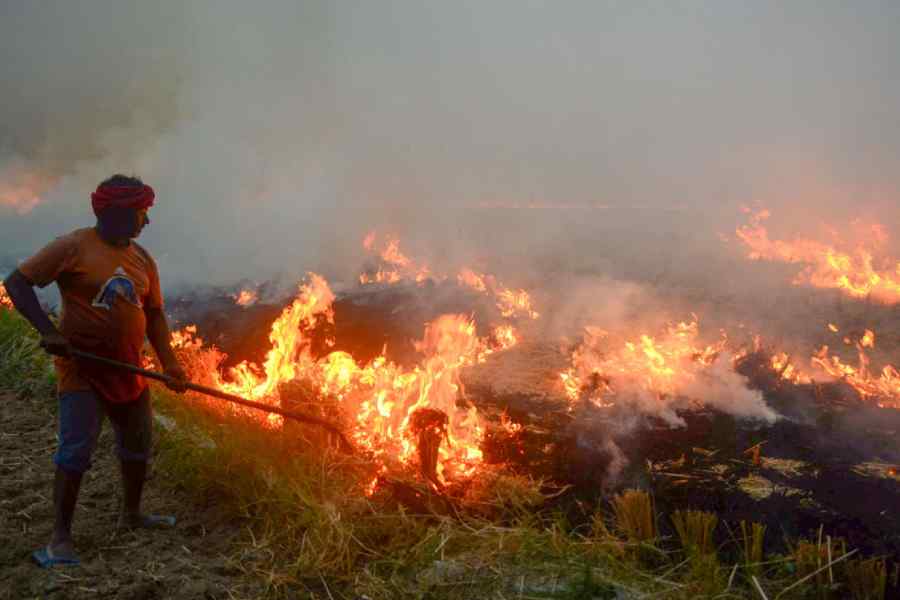Stubble Burning on the Rise in India, with Madhya Pradesh Becoming a Major Contributor
Despite government efforts, the burning of agricultural waste is increasing in India, with Madhya Pradesh now the second-largest contributor after Punjab.

Over the last ten years, India's greenhouse gas emissions from burning agricultural waste have climbed by 75%. A satellite-based analysis revealed that Madhya Pradesh has the second-largest area of field fires in the country, behind Punjab.
The research has shown an exponential increase in the amount of agricultural land burnt in Madhya Pradesh and other states beyond the Indo-Gangetic plains, even though crop residue or stubble fires in Punjab and Haryana are a key contributing factor to early-winter episodes of air pollution over the National Capital Region.
The study conducted by experts at the Indian Institute of Science Education and Research (IISER), Bhopal, has produced the first estimates of the agricultural area burnt and emissions from the fires at the district level, almost nationally.
The results highlight worries that, even after the Union Agriculture Ministry started a nationwide crop residue management program in 2014, burning of crop residues persists. Tiny soot particles from the stubble fires contribute to air pollution and long-lasting greenhouse gas emissions.
Data from the central government was made public earlier this week, revealing that since September of this year, there have been 13 times as many stubble fires in Punjab, which is run by the AAP, than in Haryana, which is led by the BJP alliance.
The study's lead researcher, Dhanyalekshmi Pillai, an assistant professor at the IISER's department of earth and environmental sciences, said that "unfavorable weather conditions contribute to stubble burning emissions from Punjab and Haryana being dumped over the NCR."
Nonetheless, burning stubble is common. Because of wind patterns, the pollutants from neighboring states don't harm the NCR, but they still need to be dealt immediately, the source told The Telegraph.
All states excluding the Northeast were included in the survey, which included 602 districts. It was discovered that, from 3 million hectares in 2011 to 4.5 million hectares in 2020, the nation's whole agricultural land burnt. The journal Science of the Total Environment has published a research conducted by Pillai and her colleagues.
In the states bordering the Indo-Gangetic plains, such as Punjab and Haryana, this area has increased by 21%. However, in other states, the region had a 37% decline between 2011 and 2015, followed by an exponential 245 percent gain.
According to the report, under this trend, India's annual emissions of greenhouse gases that warm the planet by burning stubble rose from over 19,340 billion grams in 2011 to over 33,800 billion grams.
Thirty percent of the country's total agricultural land burnt was in Madhya Pradesh, followed by Punjab with forty-one percent.
Madhya Pradesh ranked second in 2020 in terms of greenhouse gas emissions from burning agricultural residue (9,600 billion grams), behind only Punjab's 15,000 billion grams.
The IISER research also discovered that after 2015, the contributions of stubble burning from Madhya Pradesh and Rajasthan increased dramatically, rising by 46% in Madhya Pradesh and by 70% in Rajasthan. Punjab accounted for 73% of the stubble burnt in 2011; by 2020, that percentage had marginally climbed to 77%.
Although anecdotal, Pillai and her colleagues' encounters with Madhya Pradeshn farmers indicate that a considerable number of farmers in the state are still generally ignorant about the laws that prohibit burning agricultural waste and the many methods available for removing it.
Except for the headline, this story has not been edited by Press Time staff and has been published from a syndicated feed.





















































